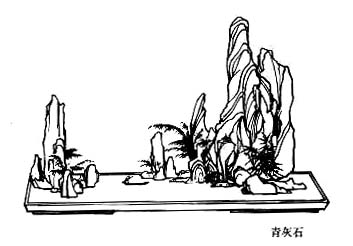論
語
Lun Yu 
 – Les Entretiens de Confucius
– Les Entretiens de Confucius
Le Maître échange propos, anecdotes, brèves paraboles et maximes avec ses disciples. Tr. Couvreur (fr), Legge (en) et Lau (en).
Lunyu XIX. 25. (509)
Tch'enn Tzeu k'in dit à Tzeu koung : « C'est par modestie que vous mettez Tchoung gni au-dessus de vous. Est-ce qu'il est plus sage que vous ? » Tzeu koung répondit : « L'homme honorable peut, d'une parole, manifester son savoir ou révéler son ignorance. Ainsi ne peut-il parler sans circonspection. Personne ne peut égaler notre Maître, de même que personne ne peut s'élever jusqu'au ciel avec une échelle. Si notre Maître avait eu un État à gouverner, il aurait, comme on dit, relevé [le peuple], et [le peuple] se serait levé. Il l'aurait mené sur la Voie, et celui-ci aurait marché ; il lui aurait procuré la paix, et celui-ci l'aurait rejoint ; il l'aurait mis à l'œuvre, et celui-ci lui aurait répondu ; il aurait été honoré pendant sa vie, et pleuré après sa mort. Qui peut l'égaler ? »
Couvreur XIX.25.
Confucius can be no more equalled than the heavens can be climbed:– by Tsze-kung.
1. Ch'an Tsze-ch'in, addressing Tsze-kung, said, "You are too modest. How can Chung-nî be said to be superior to you?"
2. Tsze-kung said to him, "For one word a man is often deemed to be wise, and for one word he is often deemed to be foolish. We ought to be careful indeed in what we say.
3. "Our Master cannot be attained to, just in the same way as the heavens cannot be gone up by the steps of a stair.
4. "Were our Master in the position of the ruler of a state or the chief of a family, we should find verified the description which has been given of a sage's rule:– he would plant the people, and forthwith they would be established; he would lead them on, and forthwith they would follow him; he would make them happy, and forthwith multitudes would resort to his dominions; he would stimulate them, and forthwith they would be harmonious. While he lived, he would be glorious. When he died, he would be bitterly lamented. How is it possible for him to be attained to?"
Legge XIX.25.
Ch'en Tzu-ch 'in said to Tzu-kung, 'You are just being respectful, aren't you? Surely Chung-ni is not superior to you.
Tzu-kung said, 'The gentleman is judged wise by a single word he utters; equally, he is judged foolish by a single word he utters. That is why one really must be careful of what one says. The Master cannot be equalled just as the sky cannot be scaled. Were the Master to become the head of a state or a noble family, he would be like the man described in the saying: he only has to help them stand and they will stand, to guide them and they will walk, to bring peace to them and they will turn to him, to set them tasks and they will work in harmony. In life he is honoured and in death he will be mourned. How can he be equalled?'
Lau [19:25]

Les Entretiens de Confucius – Lun Yu XIX. 25. (509) – Chinois on/off – Français/English
Alias the Lunyu, the Lun Yü, the Analects, les Entretiens du maître avec ses disciples.
Le Canon des Poèmes, Les Entretiens, La Grande Étude, Le Juste Milieu, Les Trois Caractères, Le Livre des Mutations, De la Voie et la Vertu, 300 poèmes Tang, L'Art de la guerre, Trente-six stratagèmes
Bienvenue, aide, notes, introduction, table.
Index – Contact – Haut de page























